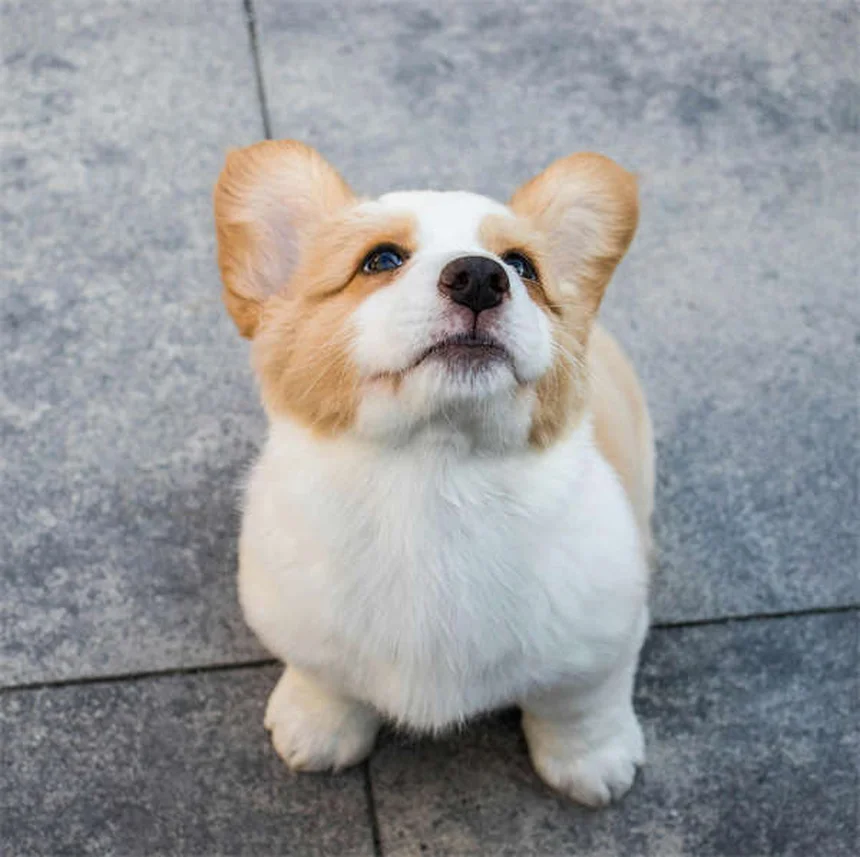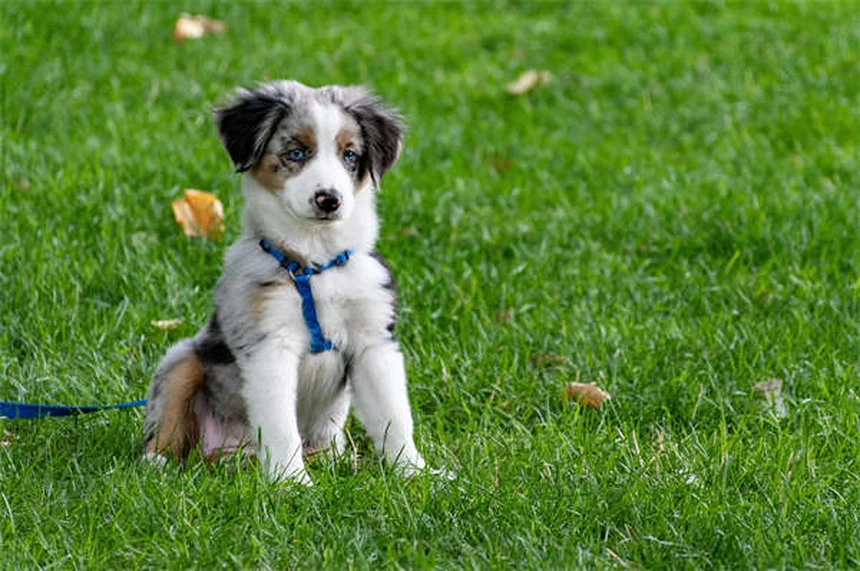How Many Hours Do Cats Sleep? The Surprising Truth About Cat Naps
How many hours do cats sleep? The answer might shock you - cats typically sleep 12-16 hours daily, with kittens and seniors clocking even more! As a cat owner myself, I used to worry my tabby was sleeping too much until I learned this is completely normal feline behavior. Here's the deal - cats are natural predators wired for short bursts of intense activity followed by long recovery periods. That's why your housecat can go from dead asleep to chasing a laser pointer in seconds! In this guide, we'll break down exactly why cats sleep so much, when you should worry, and how to create the perfect sleep environment for your furry friend.
E.g. :5 Must-Know Reasons to Get Kitten Insurance ASAP
- 1、How Much Do Cats Really Sleep?
- 2、The Secret Life of Sleeping Cats
- 3、7 Fascinating Reasons Cats Sleep So Much
- 4、When Should You Worry?
- 5、Fun Cat Sleep Facts
- 6、Keeping Your Cat Happy and Healthy
- 7、The Hidden World of Cat Dreams
- 8、The Evolution Behind the Snooze
- 9、Sleep and the Modern Cat-Human Relationship
- 10、Sleep Disorders in Cats
- 11、Creating the Ultimate Cat Sleep Sanctuary
- 12、FAQs
How Much Do Cats Really Sleep?
The Surprising Numbers Behind Cat Naps
Ever looked at your snoozing feline and wondered "Is this normal?" Well, let me tell you - cats are professional sleepers! On average, our furry friends clock in 12-16 hours of sleep daily. That's nearly twice as much as we humans need!
But here's something interesting - not all cats sleep the same amount. Check out this comparison table showing how age affects their sleep patterns:
| Age Group | Daily Sleep Hours | Sleep Style |
|---|---|---|
| Kittens | 18-20 hours | Deep growth sleep |
| Adult Cats | 12-16 hours | Light naps + deep sleep |
| Senior Cats | 16-20 hours | More frequent naps |
Why So Much Sleep?
You might be thinking "Do cats really need that much rest?" Absolutely! Here's the deal - cats are natural predators (even your chubby housecat has those instincts). Hunting requires bursts of intense energy, so they need plenty of downtime to recharge. Think of them as tiny athletes who train for the occasional sprint!
The Secret Life of Sleeping Cats
 Photos provided by pixabay
Photos provided by pixabay
Catnaps vs. Deep Sleep
Here's a fun fact - cats don't actually sleep for 16 hours straight. They take 15-30 minute power naps throughout the day. This "catnap" technique lets them stay somewhat alert while resting. It's like when you doze off during a boring meeting but can still hear your boss calling your name!
During these naps, you might notice your cat's ears twitching or eyes slightly open. That's their built-in security system working - ready to spring into action if needed. Pretty cool, right?
Night Owls or Early Birds?
Ever been woken up at 3 AM by a hyperactive cat? There's a reason for that! Cats are crepuscular - most active at dawn and dusk. In the wild, these are prime hunting times. So when your kitty seems lazy all day, they're probably saving energy for their "night shift."
7 Fascinating Reasons Cats Sleep So Much
1. Energy Conservation Mode
Remember how I mentioned cats are natural hunters? Even indoor cats have that wild instinct. All that pretend-hunting of toy mice and laser pointers burns energy fast. Sleeping is their way of recharging those tiny batteries for the next adventure.
 Photos provided by pixabay
Photos provided by pixabay
Catnaps vs. Deep Sleep
Here's something you might not realize - sometimes cats sleep simply because they're bored! Imagine being home alone all day with nothing but a scratching post for company. You'd probably nap too!
Try these easy fixes to keep your cat engaged:- Puzzle feeders (make them work for treats!)- Window perches (cat TV is real!)- Regular play sessions (5 minutes, 3 times daily works wonders)
3. Stress Relief
Did you know cats can get stressed just like us? Changes in routine, new pets, or even rearranged furniture can trigger anxiety. Some cats cope by sleeping more. It's their version of hiding under the covers when life gets overwhelming.
4. Healing Power
When cats aren't feeling well, sleep becomes their medicine. Whether it's a minor injury or something more serious, extra rest helps their bodies recover. That's why you'll often find sick cats seeking out quiet, cozy spots to recuperate.
 Photos provided by pixabay
Photos provided by pixabay
Catnaps vs. Deep Sleep
Senior cats naturally slow down, just like humans do. Those extra naps help conserve energy and manage any aches or pains. If your older cat seems extra sleepy, consider:- Softer bedding- Lower litter box sides- More accessible food/water stations
6. Weather Watchers
Ever notice your cat sleeps more on rainy days? They're not being lazy - they're just smart! Cats often match their activity levels to the weather. Cold or stormy day? Perfect for curling up in a sunbeam (or what would be a sunbeam if it weren't cloudy!).
7. Dreaming of Mice
Watch a sleeping cat sometime. See those twitching paws or whiskers? They're probably dreaming about chasing something! Research suggests cats dream just like we do - though their dreams likely involve fewer embarrassing school moments and more triumphant mouse-catching.
When Should You Worry?
Normal Sleep vs. Problem Sleep
While lots of sleep is normal for cats, sudden changes might signal trouble. Ask yourself: "Is my cat sleeping more than usual?" If you notice these red flags, it's vet time:- Sleeping through meal times- Difficulty waking up- Changes in eating/drinking habits- Hiding more than usual
Creating the Perfect Sleep Environment
Want to help your cat get quality rest? Try these pro tips:1. Offer multiple sleeping options (some cats like to rotate beds)2. Keep beds away from noisy appliances3. Provide both warm and cool spots (cats regulate temperature through sleep locations)4. Consider a heated bed for older cats
Remember, every cat is unique. My neighbor's tabby sleeps 18 hours daily and is perfectly healthy, while my sister's Bengal barely naps at all! The key is knowing what's normal for your cat.
Fun Cat Sleep Facts
The Science Behind the Snooze
Cats have an amazing ability to fall asleep almost anywhere. This comes from their wild ancestors who needed to grab rest whenever possible. Some cool sleep adaptations include:- Ability to sleep lightly while still somewhat alert- Quick transition from sleep to full alertness- Temperature regulation through sleep positions
Sleep Position Meanings
Did you know you can tell how comfortable your cat feels by how they sleep?- Belly up = Total trust- Curled loaf = Cozy but alert- Paws over eyes = "Turn down the lights, human!"- Sprawled out = Completely relaxed
Keeping Your Cat Happy and Healthy
Playtime = Better Sleep
A tired cat is a happy sleeper! Try to schedule play sessions before your bedtime to help sync up your schedules. Even 10 minutes of chasing a feather toy can make a big difference in their sleep quality (and yours - no more 3 AM wake-up calls!).
The Food-Sleep Connection
What your cat eats affects their sleep too. High-quality protein helps maintain energy levels, while scheduled feeding times create routine. Pro tip: A small meal before bedtime can help prevent those early morning "I'm starving!" meows.
At the end of the day (literally!), cats sleep so much because that's what nature designed them to do. Whether they're conserving energy for imaginary hunts or just enjoying the good life, those long naps are perfectly normal. The important thing is understanding your cat's unique patterns and knowing when something might be off. Now if you'll excuse me, all this talk about sleep is making me want to take a catnap myself!
The Hidden World of Cat Dreams
What's Happening Behind Those Twitching Whiskers?
Ever watched your sleeping cat's paws flutter like they're running? That's not just random movement - your feline friend is likely dreaming! Scientists believe cats experience REM sleep just like humans do. During this phase, their brains replay daily activities, process memories, and yes - probably imagine epic chases after that red dot from the laser pointer.
Here's something fascinating - kittens spend way more time in REM sleep than adult cats. Makes sense when you think about it - they've got so much to learn about being cats! All those pouncing practice sessions need to be processed overnight. I bet if we could peek into their dreams, we'd see endless replays of failed jumps off the couch and triumphant catches of toy mice.
The Sleep Position Dictionary
Your cat's sleeping posture is like their personal mood ring! That curled-up "loaf" position isn't just adorable - it's practical too. By tucking in their paws and tail, cats conserve body heat while keeping vital organs protected. It's the feline equivalent of wrapping yourself in a cozy blanket burrito.
When your cat sprawls belly-up in the middle of your living room, that's the ultimate compliment. They're saying "I feel 100% safe here." In the wild, exposing their belly would make them vulnerable - so this position shows complete trust in their environment (and in you!). My cat only does this when I'm home alone with her - the second someone else enters, she flips over like a pancake!
The Evolution Behind the Snooze
From Desert Hunters to Sofa Kings
Modern housecats inherited their sleep patterns from African wildcat ancestors. These desert-dwelling hunters needed to conserve energy between hunts in harsh environments. The ones who mastered the art of power napping survived to pass on their genes - and now we've got living room panthers who sleep through our Netflix binges!
Think about it - your cat's ancestors had to stay alert for prey while avoiding becoming prey themselves. That explains why even the deepest-sleeping housecat can go from snoring to fully alert in seconds when they hear the treat bag crinkle. It's like they've got a built-in snack radar!
Domestication's Sleepy Side Effects
Here's a fun twist - indoor cats actually sleep more than their outdoor counterparts! Without the need to hunt or defend territory, our pampered pets have extra time to fill. Some experts estimate indoor cats sleep 2-3 hours more per day than community cats. That's like getting a whole extra night's sleep!
But don't let those extra zzz's fool you - indoor cats still need mental stimulation. Without it, they might sleep even more out of sheer boredom. That's why puzzle feeders and interactive toys are so important - they give your cat's brain the workout their ancestors got from hunting real prey.
Sleep and the Modern Cat-Human Relationship
Syncing Your Schedules
Ever wonder why your cat suddenly becomes a furry alarm clock at 5 AM? Their natural crepuscular rhythm doesn't exactly match our 9-to-5 lifestyle. But here's the good news - you can gently adjust their schedule with strategic play and feeding times.
Try this trick that worked wonders for me: schedule a vigorous play session right before your bedtime, followed by a small meal. This mimics the natural hunt-eat-groom-sleep cycle cats would follow in the wild. After a few weeks, my night owl cat started sleeping through until my alarm - well, most mornings anyway!
The Bed-Sharing Debate
Should you let your cat sleep in your bed? There's no one-size-fits-all answer. Some people love the cozy companionship, while others can't stand the midnight zoomies. If you do share your bed, consider these tips:
- Keep a separate cat bed nearby for when they (or you) need space
- Establish a bedtime routine to minimize nighttime disruptions
- Use washable blankets - because hairballs happen
Personally, I compromised with my cat - she gets the foot of the bed, and we have a strict no-face-sitting policy. Though I'll admit, on cold nights, I don't mind when she becomes a living hot water bottle!
Sleep Disorders in Cats
When Napping Becomes a Problem
While excessive sleep is usually normal for cats, true sleep disorders do exist. Feline narcolepsy, though rare, can cause sudden sleep attacks - imagine your cat literally falling asleep mid-play! More common issues include sleep disturbances from pain, hyperthyroidism, or cognitive decline in senior cats.
Watch for these warning signs that might indicate a sleep problem:
- Excessive daytime sleepiness despite normal nighttime activity
- Difficulty settling down or apparent insomnia
- Dramatic changes in sleep-wake cycles
- Sleep that doesn't seem restful (constant shifting, vocalizing)
The Vet's Sleep Checklist
If you're concerned about your cat's sleep patterns, your vet will likely ask:
| Question | Why It Matters |
|---|---|
| Has sleep duration changed? | Sudden increases can indicate illness |
| Is the cat hard to rouse? | Could suggest metabolic issues |
| Any nighttime disturbances? | Might point to cognitive dysfunction |
| Changes in appetite with sleep changes? | Could signal systemic illness |
Remember, you know your cat best. If their sleep habits suddenly seem "off," trust your instincts and get them checked out. Better safe than sorry when it comes to our furry family members!
Creating the Ultimate Cat Sleep Sanctuary
Location, Location, Location
Cats are particular about their sleeping spots - and for good reason! In the wild, choosing the wrong place to nap could be deadly. That's why your cat might test out several spots before settling down. Here's what they're looking for in the perfect nap zone:
- Safety: Elevated spots or enclosed areas make them feel secure
- Temperature: Cats prefer warmer spots (about 86-97°F) for optimal comfort
- Viewpoints: They like to keep an eye on their territory even while resting
I learned this the hard way when I bought my cat an expensive bed she completely ignored. Turns out she preferred the cardboard box it came in - classic cat move!
The Bedding Breakdown
Not all cat beds are created equal. Here's what to consider when shopping:
- Material: Soft, washable fabrics work best
- Shape: Some cats like caves, others prefer open mats
- Size: Should allow for stretching but still feel cozy
- Placement: Keep beds in quiet, low-traffic areas
Pro tip: If your cat refuses to use their fancy new bed, try putting one of your worn t-shirts in it. Your scent can make unfamiliar spaces feel safer. My cat's current favorite "bed" is actually my old college sweatshirt folded up in a sunny windowsill!
E.g. :Why Do Cats Sleep So Much? | PetMD
FAQs
Q: Why do cats sleep so much compared to humans?
A: Cats sleep way more than humans because of their natural hunting instincts. While we humans are built for endurance, cats are sprinters - they need those long naps to recover from short bursts of intense activity. Think about it: in the wild, cats might spend hours stalking prey, then need serious downtime after the chase. Even your lazy housecat has this same biological wiring! Their sleep patterns also change with age - kittens sleep up to 20 hours for growth, while seniors nap more due to decreased energy.
Q: Is it normal for my cat to sleep all day and be active at night?
A: Absolutely! This is called being "crepuscular" - most active at dawn and dusk. It's completely normal cat behavior rooted in their wild ancestors' hunting patterns. Many cat owners mistake this for sleeping "all day" when really, your feline friend is just saving energy for their natural active periods. If the 3 AM zoomies are keeping you up, try scheduling play sessions before bedtime to help adjust their schedule.
Q: How can I tell if my cat is sleeping too much?
A: Watch for these red flags: sleeping through meals, difficulty waking up, or changes in eating/drinking habits. While 16 hours might be normal for one cat, it could signal illness in another. The key is knowing your cat's baseline - my neighbor's Persian sleeps 18 hours happily, while my Bengal mix only naps 10. When in doubt, trust your gut and consult your vet. It's always better to be safe than sorry with our furry family members!
Q: Do indoor cats sleep more than outdoor cats?
A: Generally yes, indoor cats tend to sleep more because they have less stimulation. Outdoor cats get natural exercise hunting and exploring, while indoor kitties often nap out of boredom. But don't feel guilty - you can keep your indoor cat active with puzzle feeders, window perches, and daily play sessions. I've found even 5 minutes of feather toy play 3 times daily makes a huge difference in my cat's energy levels and sleep quality.
Q: Why does my cat twitch while sleeping?
A: Those adorable twitches mean your cat is dreaming! Research shows cats experience REM sleep just like humans, complete with dream content. While we might dream about work or school, your kitty is probably reliving their greatest hunting moments - watch closely and you might see paws moving like they're chasing something! It's completely normal and actually a sign of deep, healthy sleep. Just try not to wake them during these active dream phases.







